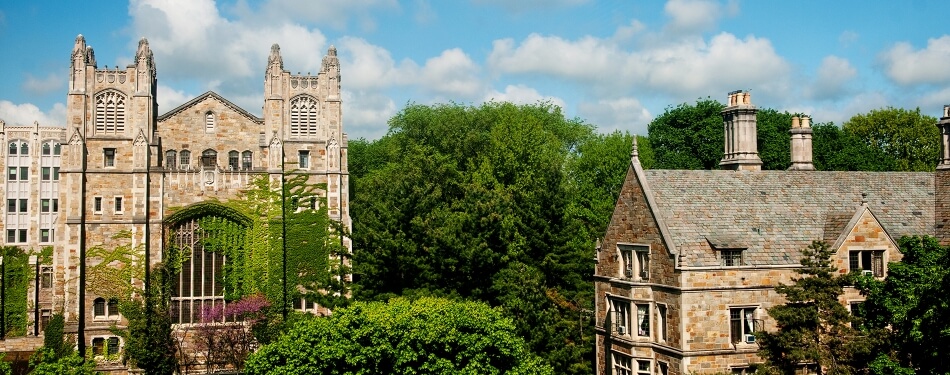About the Program
In addition to attracting Americans, Michigan Law draws countless European students, scholars, and future officials to Ann Arbor to study European legal integration. Many of our faculty members lecture, present workshops, and teach at European institutions, while our highly selective L. Bates Lea Global Professor of Law brings numerous outstanding European academics to share their expertise. Our student body is enriched by European graduate and post-graduate students studying alongside American JD candidates. And our extensive and close-knit network of European alumni remains actively involved in the life of the Law School.
The European Legal Studies Program also offers students the opportunity to participate in a variety of workshops, seminars and events, many of which are coordinated by the European Union Center, which serves as the hub for Michigan’s extensive resources and expertise in the interdisciplinary study of modern Europe, Central and Eastern Europe, and the European Union.
Through its Conversations on Europe program, the European Union Center has brought numerous intellectuals and public figures to campus, including former European Commission President Romano Prodi; former German Foreign Minister and Vice Chancellor Joschka Fischer; and former Polish President Aleksander Kwaśniewski.
-
Curriculum
Courses and seminars within the European Legal Studies Program focus on European law, legal history and integration. Transnational law, which introduces students to the international dimensions of law, is the basic course on which further, more specialized international courses, such as European Legal Order, can build.
European Legal Order presents the basic legal architecture of the European Union and focuses on the progression of substantive law from free movement (of goods, persons, services and capital) to common citizenship and fundamental human rights. Students also critically examine the ongoing effort to adopt a constitution for Europe.
The course is enriched by the presence of visiting European LL.M. students and scholars enrolled in the class, as well as by prominent European scholars, practitioners, and judges, who co-teach various segments of the class.
Browse Courses -
Graduate Certificate Program
European and European Union Studies Graduate Certificate for Michigan Law Students
You must take:
- European Union Law (LAW 664)
- Two additional courses on Europe (6 credits), one of which must be outside the Law School (e.g., political science, economics, or business)*
And fulfill the following components:
- Third-year competency in a language spoken in the EU (other than English)
- Summer work at AIRE Centre/EU-focused internship, or an additional 3-credit course/independent research*
- Research seminar leading to a faculty-approved final paper/project*
*Course selection must be approved by the Director of the European Legal Studies Program, Daniel Halberstam, and Law School Assistant Dean for Student Life, Kimberly D’Haene.
This graduate certificate is open to all enrolled law students. Please note that certificate students must earn at least 6 credits beyond the minimum needed for their Law School graduation.
-
Study in Europe
Michigan Law is among a select group of U.S. law schools whose students are eligible to apply for clerkships at the European Court of Justice through the Dean Acheson Legal Stage Program. Organized through the U.S. Embassy in Luxembourg, the program offers stage (traineeship/internship) opportunities to a limited number of students from select U.S. law schools, offering them the opportunity to work in the chambers of a judge or advocate general of the European Court of Justice in Luxembourg. Students are nominated by their law schools and the Court makes the final selection decision.
As part of its semester study abroad opportunities, the University has established special ties with the European University Institute in Florence, Italy, the premier institution in Europe for the study of European integration. It offers doctoral and post-doctoral programs in economics, history and civilization, law, and political and social sciences.
Other semester study abroad opportunities are available at Amsterdam Law School in the Netherlands, KU Leuven in Belgium, Geneva’s Graduate Institute of International and Development Studies in Switzerland, and Bucerius Law School in Hamburg, Germany. In addition, students may investigate study abroad opportunities through the European Union Center, or propose their own student-initiated semester study programs with law faculty at other foreign universities.
Students may also apply for an internship or externship with the International Court of Justice in The Hague, London’s AIRE Centre for Advice on Individual Rights in Europe, and several Geneva-based programs. These opportunities, as well as a host of summer, academic term, and post-graduate fellowships, are administered through Michigan Law’s Center for International and Comparative Law. Additional funding and internship opportunities are also available through the European Union Center.
-
Visiting Scholars
To enhance its intellectual climate and provide a welcome forum for academic engagement from international scholars, Michigan Law hosts numerous senior-level European faculty level visitors each year. These senior faculty-level visitors typically join Michigan Law to teach a full course, pursue a research project, or participate in existing course offerings and informal workshops. Having come to Ann Arbor once, they frequently return.
European visitors have included Enzo Cannizzaro, University of Rome; Eleanor Sharpston, QC, Advocate General of the European Court of Justice; Koen Lenaerts, Judge of the European Court of Justice; Francis Jacobs, QC, former Advocate General of the Court of Justice of the European Communities; and Damian Chalmers, London School of Economics and Political Science.
In addition, the Law School hosts research scholars each year through various programs which are open to European applicants on a competitive basis.
European scholars (other than degree candidates) interested in applying to these programs should contact Theresa Kaiser-Jarvis, Assistant Dean for International Affairs, prior to their application. All degree candidates must apply for funding as part of their application for admission.

